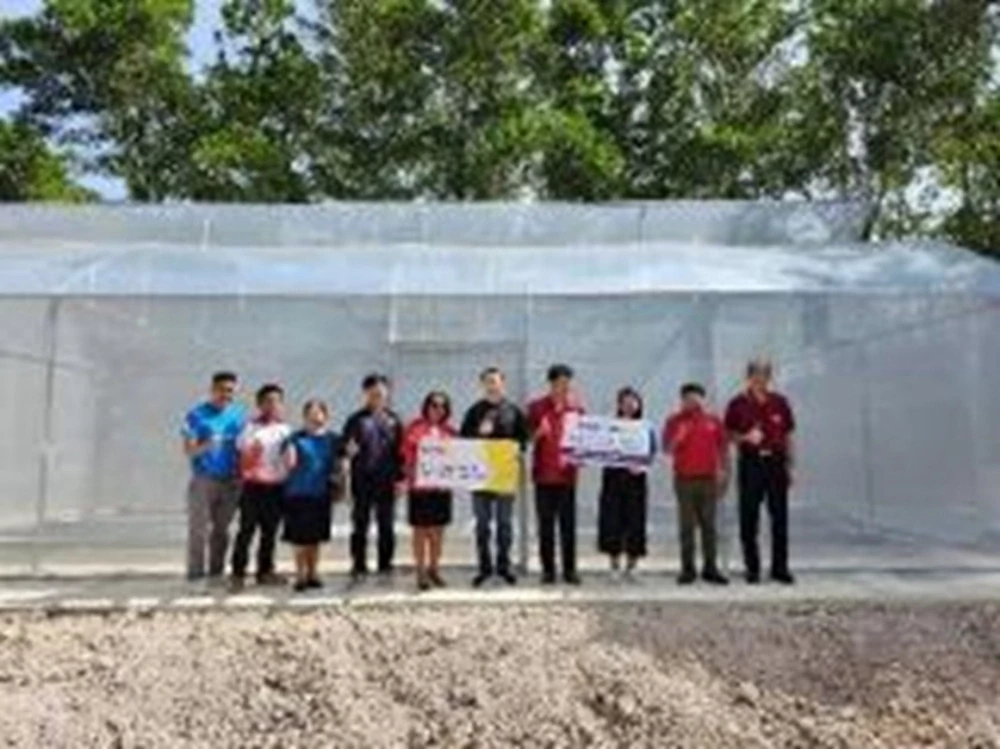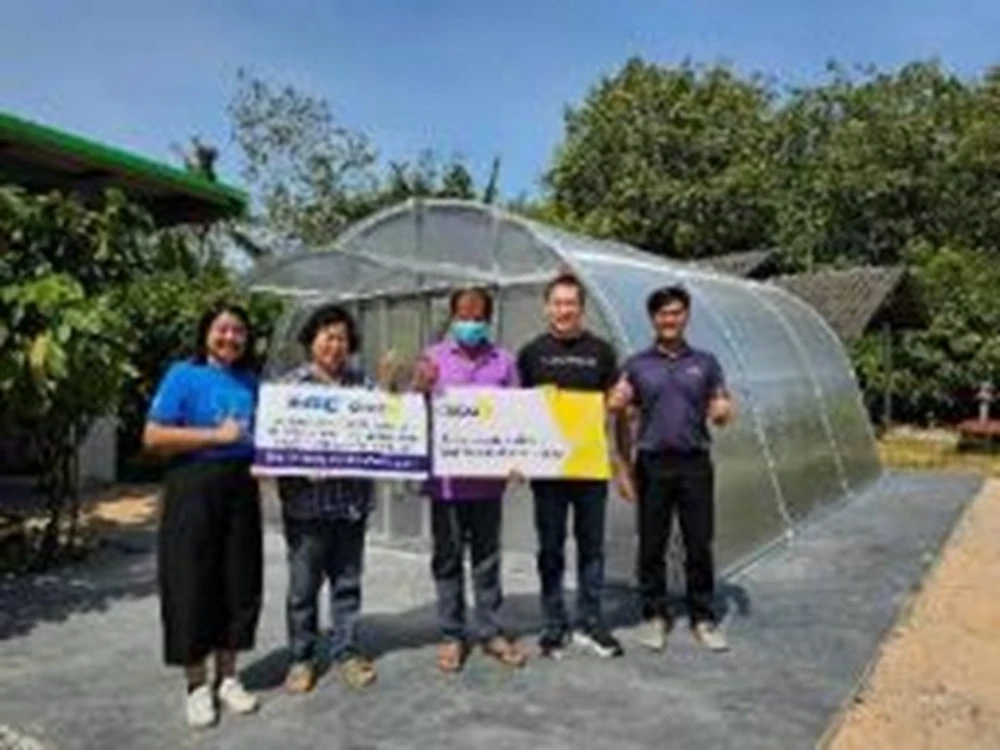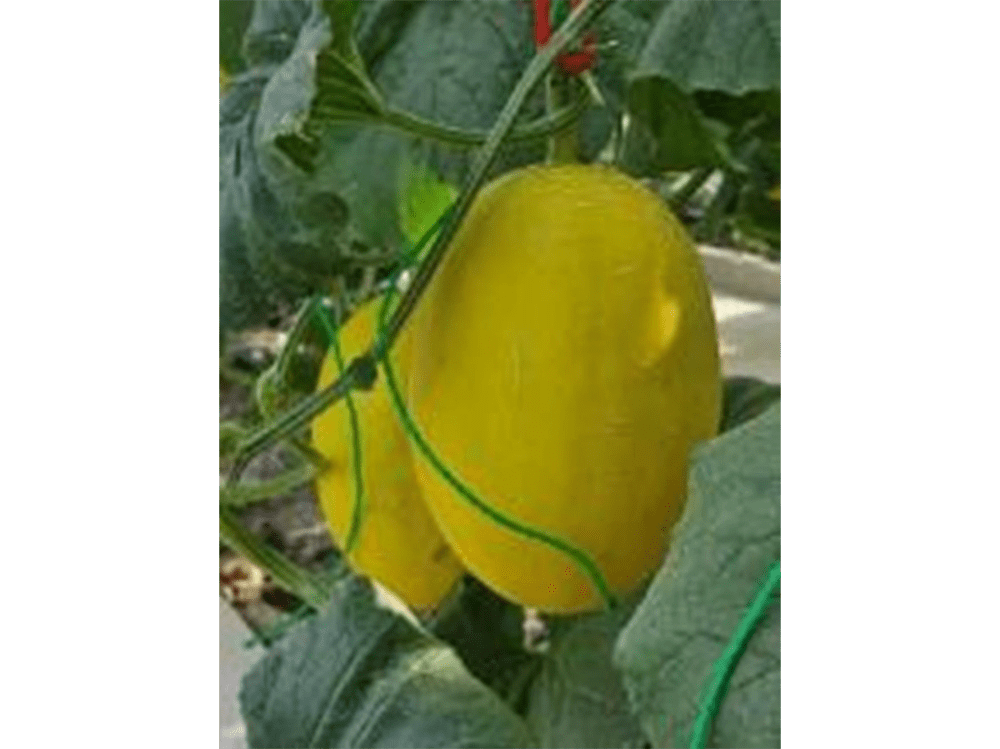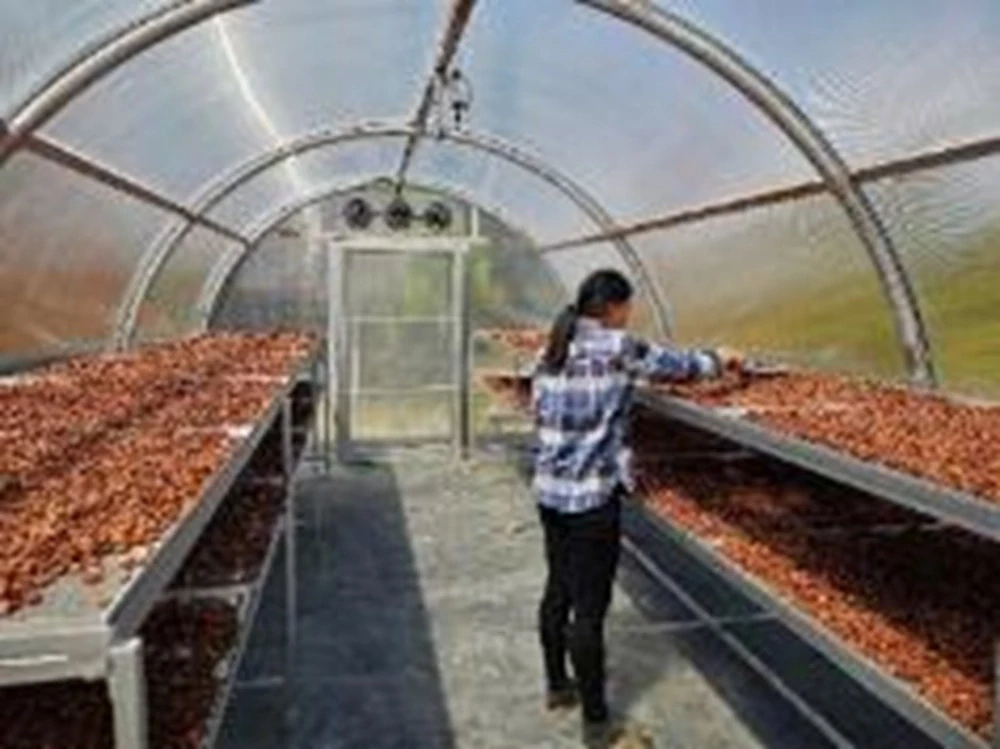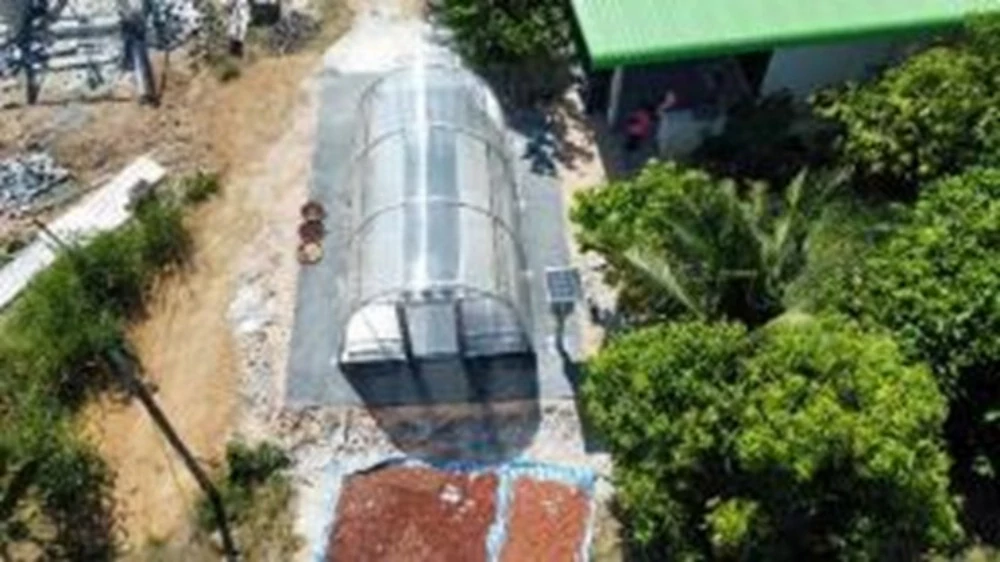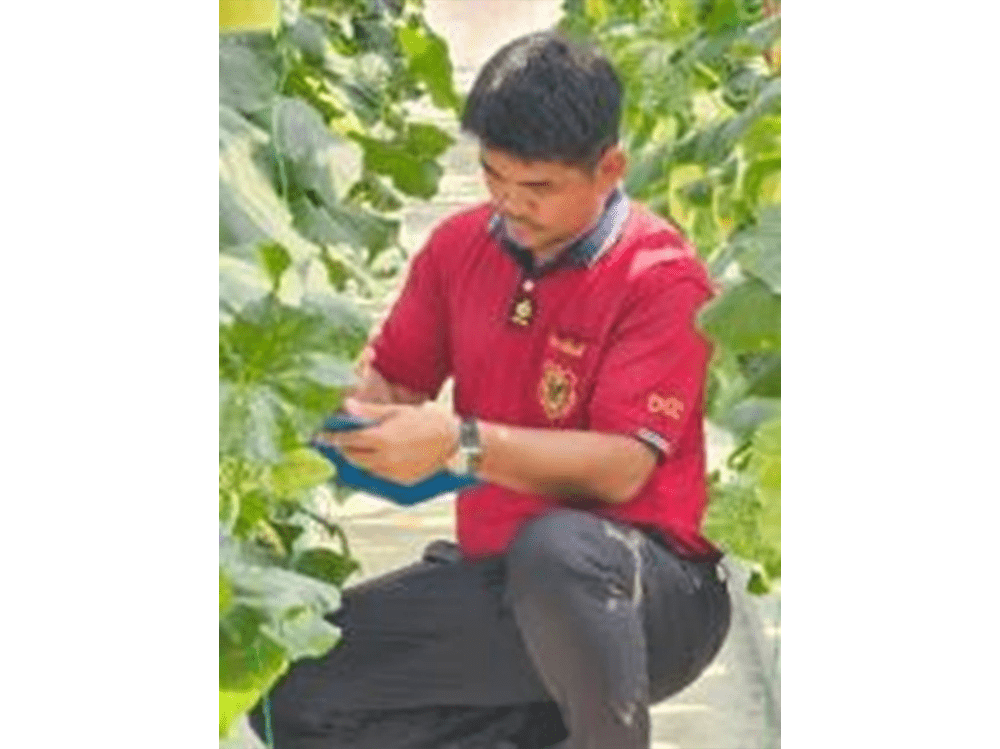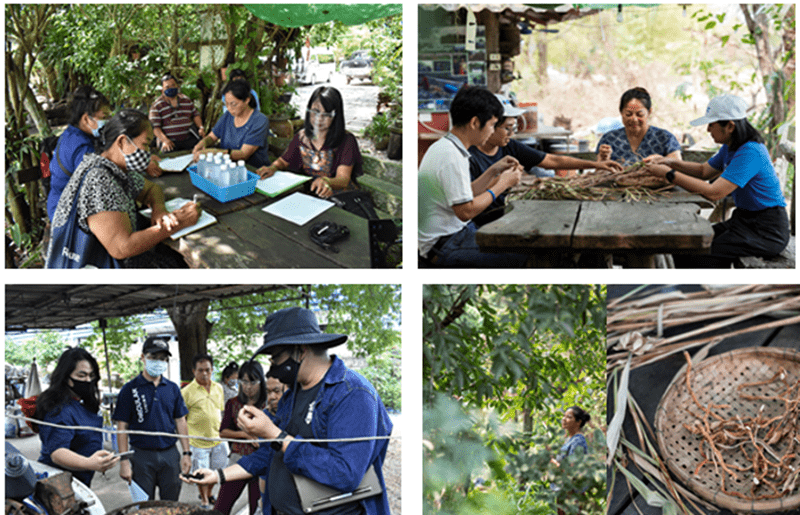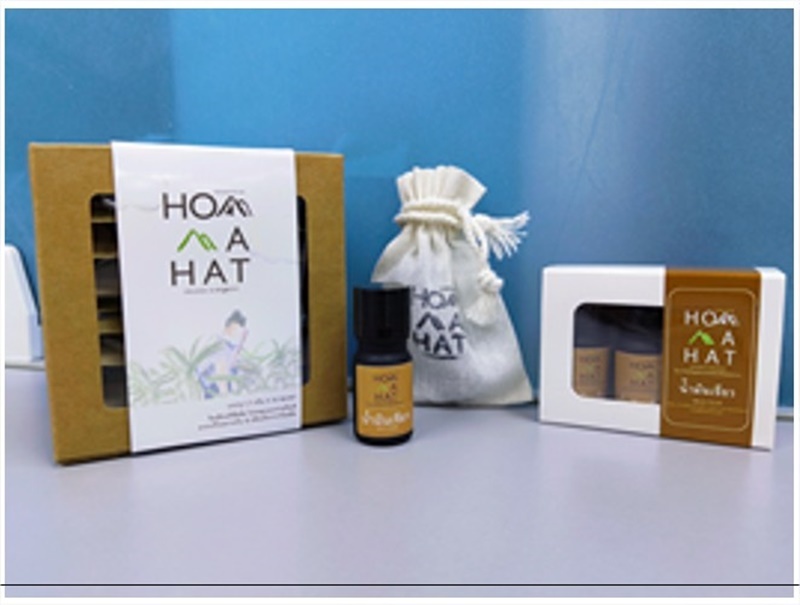Creating Shared Value and Social Enterprise
GC uplifts CSR projects to Creating Shared Value (CSV) projects and Social Enterprise (SE) to strengthen company business performance, and associate with the Corporate Sustainability Strategy to increase value to the communities.
Wat Chak Daeng Upcycling Product Development Project
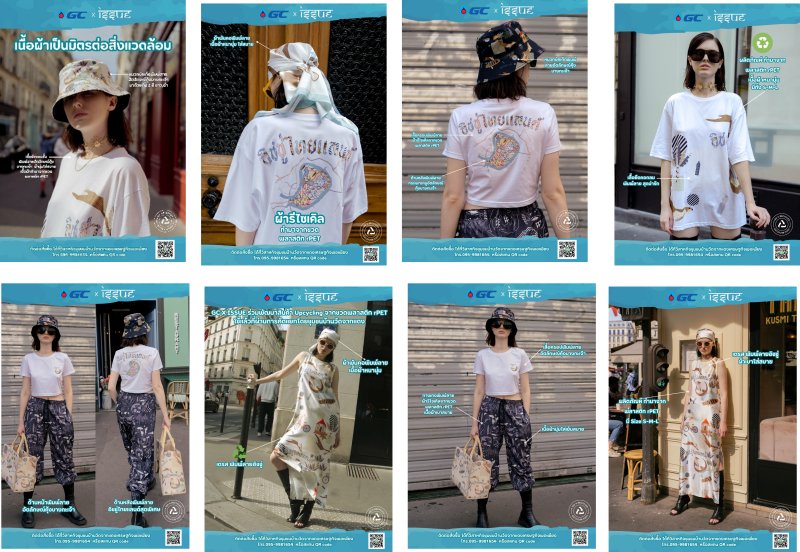
GC has participated in the “Our Khung Bangkachao” initiative since 2018, a collaborative effort involving more than 34 leading Thai organizations (as of September 2018) from the public, private, and civil society sectors. The initiative, under the supervision of the Chaipattana Foundation, aims to address waste issues in the area by applying Circular Economy principles and fostering awareness of waste management from the source. The Company was appointed as the project’s lead and mentor to the Ban Wat Chak Daeng Community Enterprise.
In 2024, GC expanded the project by designing and producing fashionable, modern upcycled fabric products from Wat Chak Daeng to attract younger generations and raise environmental awareness. In collaboration with the leading fashion brand ISSUE Thailand, the designs featured unique elements of Khung Bangkachao, such as otters, nipa palms, and local activities, printed on fabric made from recycled plastic bottles. All proceeds were returned to the Ban Wat Chak Daeng Community Enterprise to fund future product collections.
These products were showcased on the international stage at “Siam Paragon Bangkok International Fashion Week 2024,” demonstrating the potential of CSR projects to build global awareness and extend their impact. The project successfully added value to upcycled products and facilitated knowledge transfer in design, product development, and business expansion. It also helped sustainably generate income and employment for the Ban Wat Chak Daeng community, while increasing public understanding of the upcycling process and the significance of Khung Bangkachao.
Protect Risk Protect Life with Plastic Flapped Sack Project
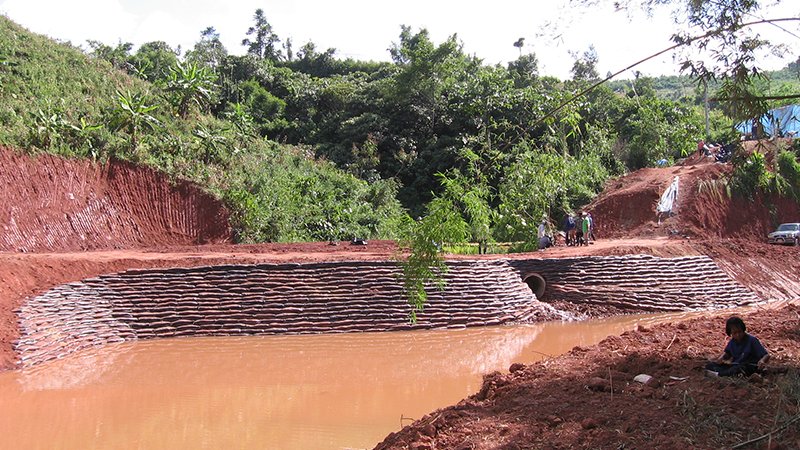
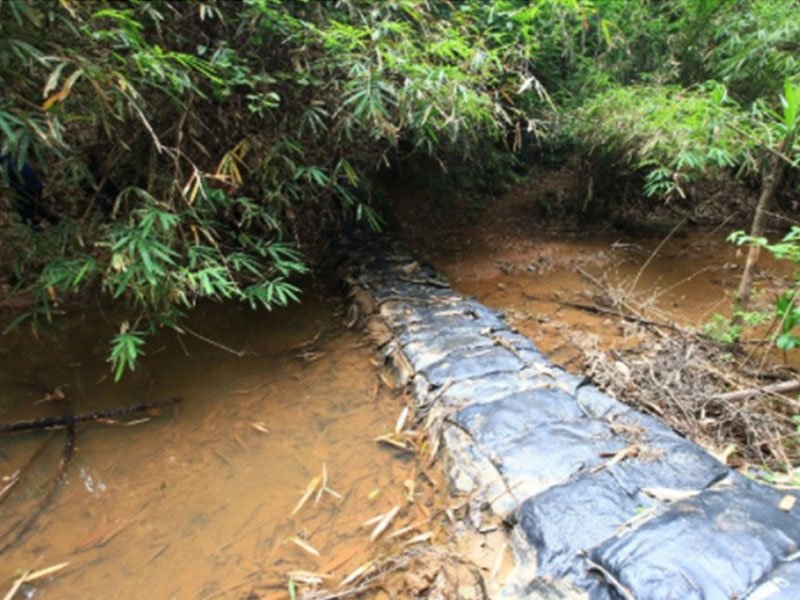
GC has designed and developed plastic flapped sacks in cooperation with Chaipattana Foundation, Hydro Informatics Institute (HII) and Department of Mineral Resources, under the Ministry of Natural Resources and Environment to cope with natural disasters under the “Protect Risk Protect Life with Plastic Flapped Sack project”. Plastic flapped sacks are made from HDPE under InnoPlus brand and PP woven together in a cross-stitched pattern. Then, the twin-needle sewing is used to join a sack and 3 flips together to strengthen its seam, resulting in tough and durable structure. In addition, anti UV materials are added to make the sack resistant to sunlight which is expected to have a long design life.
The plan for this CSV project includes
- Coordinating with external specialized partners to use plastic flapped sacks to solve and mitigate the effects of soil erosion, floods, and droughts at national scale.
- Publicizing the general information and benefits of plastic flapped sack to enhance understanding to the public leading to positive social return on investment (SROI).
In 2024, GC supported the provision of 3,000 winged plastic sacks made with recycled plastic to the Faculty of Engineering, Kasetsart University. These sacks are intended for use in preventing soil erosion along roadsides and mountain slopes in the area of the Royal Project Development Centre at Lertor, Mae Ramat District, Tak Province. Kasetsart University and the Lertor Royal Project Development Centre plan to deploy the sacks during the first quarter of 2025.
Moreover, example of other social enterprise projects supported by GC are as follows:
SMART FARMING BY GC
SMART FARMING BY GC, this social initiative leverages the expertise of the company’s personnel to enhance the local economy and quality of life, while building the capacity of farmers to manage their produce to meet standards and operate their businesses sustainably. The project also promotes value-added uses of plastic products, such as plastic bags that extend the shelf life of vegetables for packaging harvested produce, greenhouse film made from polyethylene (PE) resin, and InnoPlus water tanks made from special-grade LLDPE plastic resin. The project is implemented in three locations: the Rayong Children's Welfare Protection Center; the Hom Mahad Organic Agriculture Community Enterprise; and the Pa Ra Hydro Farm Community Enterprise.
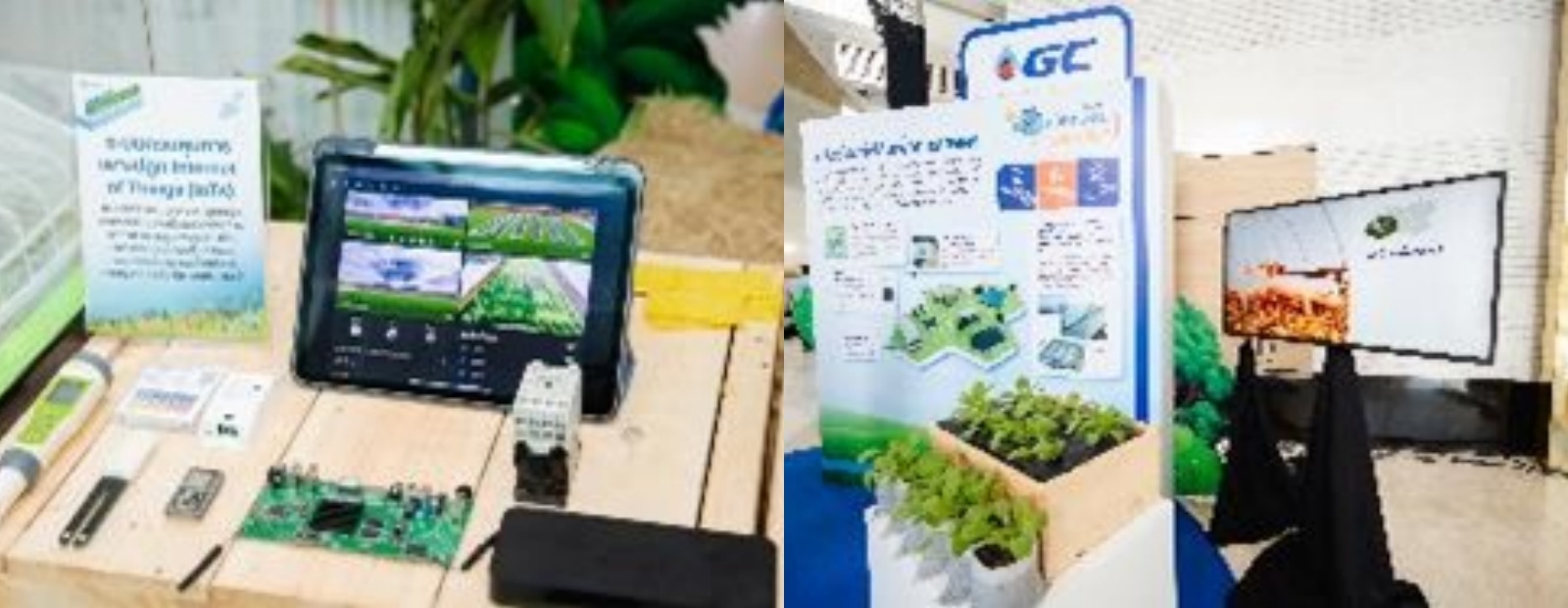
In 2024, GC expanded the project in collaboration with the Digital Economy Promotion Agency (depa), applying its knowledge, expertise, and innovations to enhance agricultural production processes and improve crop quality to support local communities. The initiative integrates IoT (Internet of Things) Smart Farm systems, GC’s plastic products, and alternative energy solutions such as solar power to promote sustainable livelihoods and boost agricultural productivity for farmers in Rayong Province. The development area has been extended to include Huai Pong Open Correctional Institution, Mueang Rayong District, Klaeng Vocational College, Klaeng District, and Wangchan Cocoa Community Enterprise, Wangchan District.
From 2022 to 2024, this project generates a total income of 688,250 baht for farmers and community enterprises. Also, the project reduced labor and operational costs by 216,000 baht represents an SROI of 5.29.
Hom Mahat Organic Farming Community Enterprise
The Reforestation and Creation of Learning Resources and Sustainable Community (Khao Huai Mahat) Project commenced its operations in 2010 through the collaboration of four organizations, namely the Faculty of Forestry, Kasetsart University, the Air and Coastal Defense Command, Konrakpa Club under Chaklukya – Khao Huai Mahat Community, and PTT Global Chemical Public Company Limited. The project targets to restore forest ecosystems and improve the quality of local life, economy, and society by encouraging public participation in sustainable forest and environmental conservation, leading to the development and establishment of the Khao Hom Mahat Organic Farming Community Enterprise. It also encourages local farmers to organically cultivate medicinal plants that are native to Khao Huai Mahat Mountain, namely “Rue Hom” and “Wan Sao Long”, with “Sampran Model” as a consultant to create products, such as Wan Sao Long tea, green oil, herbal compresses and inhalers were produced by the group, which also replanted propagated herbal seedlings back into Khao Huay Mahat. In 2024, the group generated an income of 70,336 baht, contributing to a cumulative income of 393,689 baht over the period from 2022 to 2024.
Social Enterprise Quinine Cafe' Rayong Industrial Estate Technical College
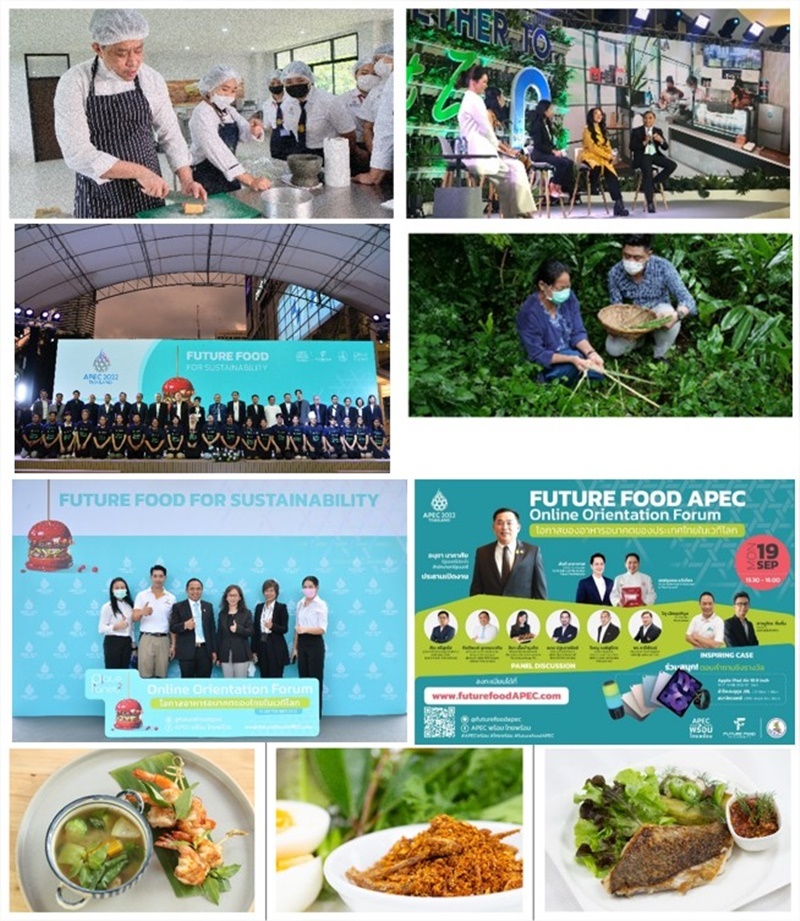
GC, in collaboration with Rayong Industrial Estate Technical College, to enhance local organic products and develop the College’s “Quinine Café” based on Social Enterprise (SE) practices. Raw materials sourced from the community, such as “Rue Hom”, “Wan Sao Long”, Centella Asiatica, and ginger, to develop into health food products and souvenirs. The acquired knowledge has been incorporated into the College’s curriculum and shared with the public to reduce risks of NCDs.
In 2024, GC promoted the development of more appealing cafe menus by bringing community chefs from the "Chefs of Rayong" project to teach 15 dishes to 15 teachers and students from the Food and Nutrition Department. This initiative generated an income of 886,277 baht, which was allocated as educational scholarships for students and to further develop the college’s products. This resulted in a Social Return on Investment (SROI) of 550.60. In addition, the college and interested members of the public can apply for short vocational training courses to support career development.
Social Enterprise: Pracharath Rak Samakkee Rayong Company (Social Enterprise) Limited
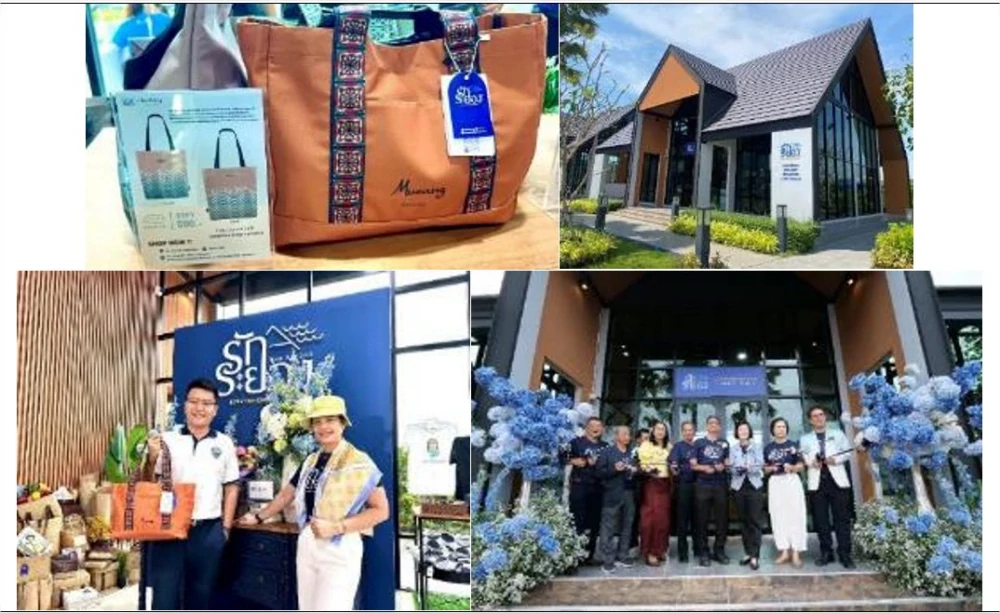
GC has continuously supported the Pracharath Rak Samakkee Rayong (Social Enterprise) project since 2016, operating under the Social Enterprise (SE) concept. The main objective is to give back to society through three key focus areas: agriculture, processing (SMEs/OTOP), and community-based tourism. Profits generated by the company are reinvested to support local communities without any dividend distribution to shareholders. The project helps improve the quality and recognition of community products, generate local employment and income, and strengthen the network of community enterprises in Rayong province. In 2024, Pracharath Rak Samakkee Rayong reported the following results:
- “Rak Rayong Shop”, a collaboration between the Rayong Provincial Administrative Organization and Pracharath Rak Samakkee Rayong (Social Enterprise) Co., Ltd., was established to showcase and modernise Rayong’s best community products. It aims to elevate product standards and increase sales channels for local goods. The initiative provides an opportunity for local producers to display and sell their products, with the overarching goal: “Generating income for communities so people can live happily.”
- In 2024, the shop generated an income of 656,337 baht with a net profit of 143,871.02 baht, achieving SROI of 2.11
